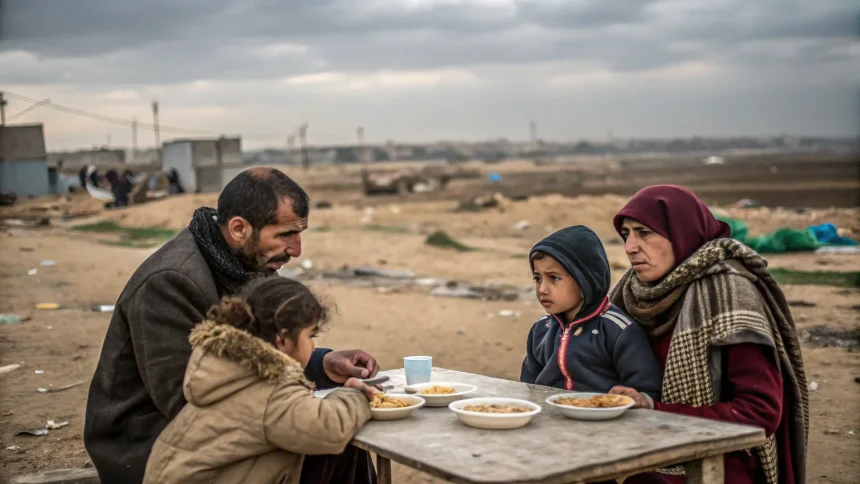Over 100 humanitarian organizations issued a stark warning last week about a severe food shortage threatening Palestinians. The coalition of aid groups cautioned that “mass starvation” is looming for residents in the territory as conditions continue to deteriorate.
The warning comes amid growing international concern about the humanitarian situation in the region, where access to basic necessities has become increasingly restricted. Aid organizations have been monitoring the situation closely, documenting declining food security indicators across the territory.
Growing Humanitarian Crisis
The joint statement from the aid groups represents one of the most significant collective warnings about the food situation to date. Organizations working on the ground report that food supplies have reached critically low levels, with many families struggling to secure even one meal per day.
The food shortage affects all segments of the population but has particularly severe impacts on children, the elderly, and those with medical conditions. Health workers in the territory have reported seeing increasing cases of malnutrition-related illnesses in recent weeks.
“Mass starvation” is not a term used lightly in humanitarian circles, indicating the severity of the current situation and the urgent need for intervention, according to experts familiar with the crisis.
Barriers to Aid Delivery
Multiple factors have contributed to the current crisis:
- Restrictions on movement of goods into the territory
- Damaged infrastructure limiting distribution capabilities
- Increased security concerns hampering aid operations
- Depleted local food reserves
Aid organizations report significant challenges in delivering assistance, with many convoys delayed or denied entry. The limited aid that does reach the territory is often insufficient to meet the growing needs of the population.
International Response
The warning from aid groups has prompted calls for immediate action from various international bodies. The United Nations has urged all parties to facilitate unimpeded humanitarian access to prevent further deterioration of the situation.
Several countries have pledged additional humanitarian assistance, though aid workers stress that commitments must translate quickly into actual food deliveries on the ground to avert the worst outcomes.
Humanitarian organizations emphasize that beyond emergency food aid, a sustainable solution requires addressing the underlying causes of food insecurity in the territory, including lifting restrictions on movement and commerce.
The food crisis comes against a backdrop of broader humanitarian challenges in the region, including shortages of medicine, clean water, and fuel. These compounding factors make addressing the situation particularly complex.
As conditions worsen, aid groups are calling for a coordinated international response that prioritizes civilian welfare and ensures humanitarian principles are respected by all parties. Without swift action, they warn, the territory faces a humanitarian catastrophe with potentially long-lasting consequences for the Palestinian population.









